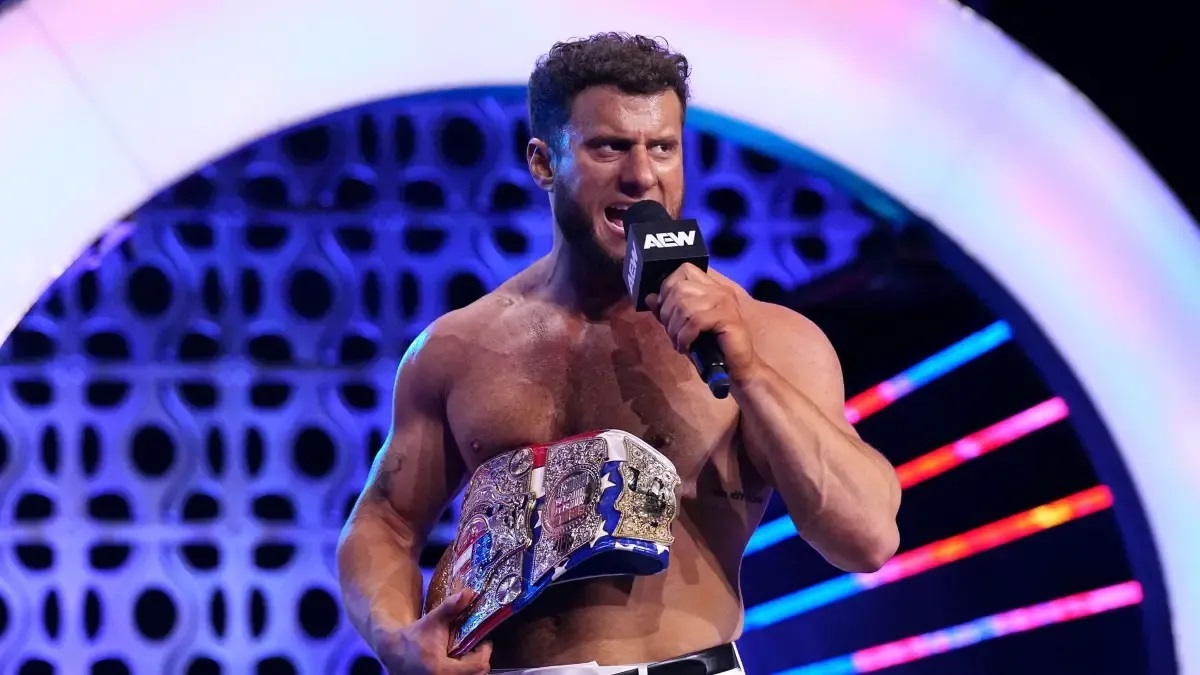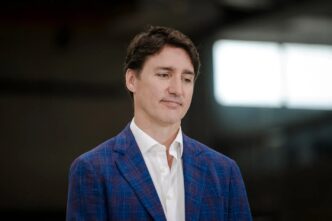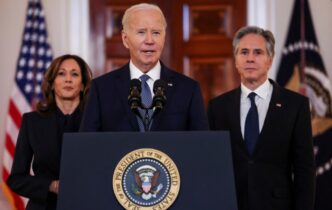You sit at home, on a worn-out couch, watching another episode of AEW Dynamite. The lights are low, and the faint hum of the television sets the mood. Pyro opens the show as usual, the commentators build excitement, and soon the camera focuses on Maxwell Jacob Friedman. He stands in the ring, microphone in hand, a familiar Burberry scarf wrapped around his neck. He looks much the same as he always did, confident and poised, yet something feels off tonight. The energy that once sparked through the screen whenever he appeared seems weaker now. A few months ago, you would have leaned forward, afraid to miss even a fraction of a second. Now you sit back, arms folded, waiting for a reason to care again.
He begins to speak, and you listen. The words feel rehearsed, the insults expected, the once-razor-sharp wit dulled. A year ago, MJF’s promos were an event unto themselves. Every phrase mattered, every pause carried weight. Back then, his voice could slice through tension like a blade, and you found yourself enthralled, captivated by the cruelty he wielded so artfully. Tonight, despite his clear articulation and steady presence, the impact is gone. It is as if the life has drained from the performance, leaving a technically sound but emotionally empty delivery.
You remember the first time you truly noticed MJF. It was early in All Elite Wrestling’s lifespan, when the company still felt fresh and daring. He stood out because he spoke with a confidence that belied his years, blending arrogance with intelligence.
He played the villain with rare finesse, never relying on cheap heat alone. Instead, he targeted his opponent’s deepest insecurities, turning each promo into psychological warfare. Fans listened not because they liked him, but because he gave them no choice. He demanded attention, made them respond, forced them to react. Hate him or love him, you could not look away.
In those early days, MJF’s storylines delivered a sense of promise. He tangled with Cody Rhodes in a dramatic betrayal, stoking genuine emotion and building anticipation for every confrontation. He worked angles with Chris Jericho that combined humor, tension, and the thrill of uncertainty. Each encounter felt significant. He seemed to command the narrative, controlling the pace of each rivalry like a conductor with a baton. Other wrestlers shouted or relied on simple insults. MJF dissected character and legacy with surgical precision.
At that time, AEW was still testing boundaries. The promotion aimed to stand apart from dominant industry forces. It prided itself on giving talent room to create, letting characters evolve, and inviting fans to experience wrestling differently. MJF thrived in that setting, using it to refine his approach. Every promo built his legend. Fans anticipated that as the company matured, he would too. They expected him to bring new layers to his character and push storylines to unexpected places. The wrestling world praised him as a prodigy, a performer who could lead AEW into a new era.
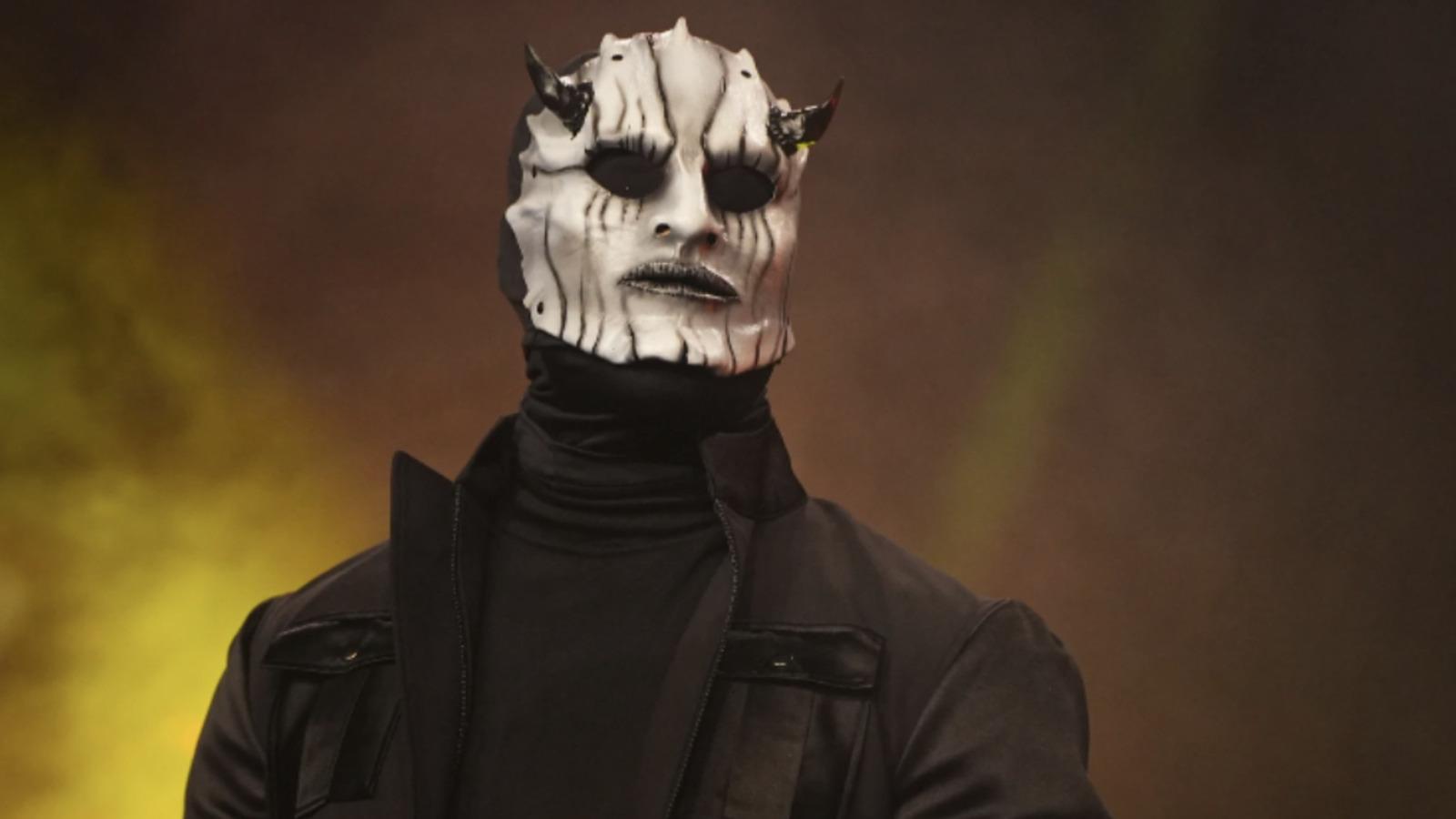
His “devil” persona solidified his image as a cunning heel who relied not on volume or meaningless cheap shots, but on insight and verbal cruelty. He exposed weaknesses others overlooked. Where some wrestlers repeated tired phrases, MJF delivered surprises each time he spoke. He could tear down a beloved hero so thoroughly that even loyal fans winced. This skill set him apart. It promised a legacy built on tension and depth, making him a unique attraction in a crowded field.
Yet, as with any character who rises quickly, the risk of stagnation loomed. Villains need fresh angles to stay compelling. Without challenges that force growth, a character that once felt bold can start to feel routine.
Over the months, MJF’s once-stunning promos began following patterns. Where there was once an unpredictable spark, now the timing felt predictable. Audiences picked up on the rhythm. Unexpected twists became rarer. The scalpel that once carved opponents into pieces now merely traced old scars.
He tried to adapt. At one point, MJF hinted at a babyface turn, or at least a more nuanced role that might add complexity. Some fans found it intriguing. Could the devil show remorse? Could he use his biting wit against genuine villains and earn cheers instead of jeers? Enter Adam Cole, a familiar favorite who could have served as a catalyst for a new dynamic. On paper, their pairing held incredible promise. Cole’s warmth and credibility might have inspired MJF to reveal new facets of his persona. The tension could have simmered beneath friendly smiles, setting the stage for a compelling slow burn.
Instead, these segments fell flat. Rather than subtle shifts in character, viewers got awkward comedy skits and forced banter. Instead of exploring MJF’s depth, the show offered scenes disconnected from the characters’ core identities.
Moments that should have revealed hidden layers came off as filler. Fans waiting for a clever twist or meaningful development got the worst outcome: a storyline that went nowhere, draining energy from both performers. Rather than opening a new chapter in MJF’s story, this misadventure underscored his struggles. The babyface tease and uneasy friendship with Cole did not humanize him or add complexity. It reduced him to a role that did not fit, failing to deliver emotional resonance or forward momentum.
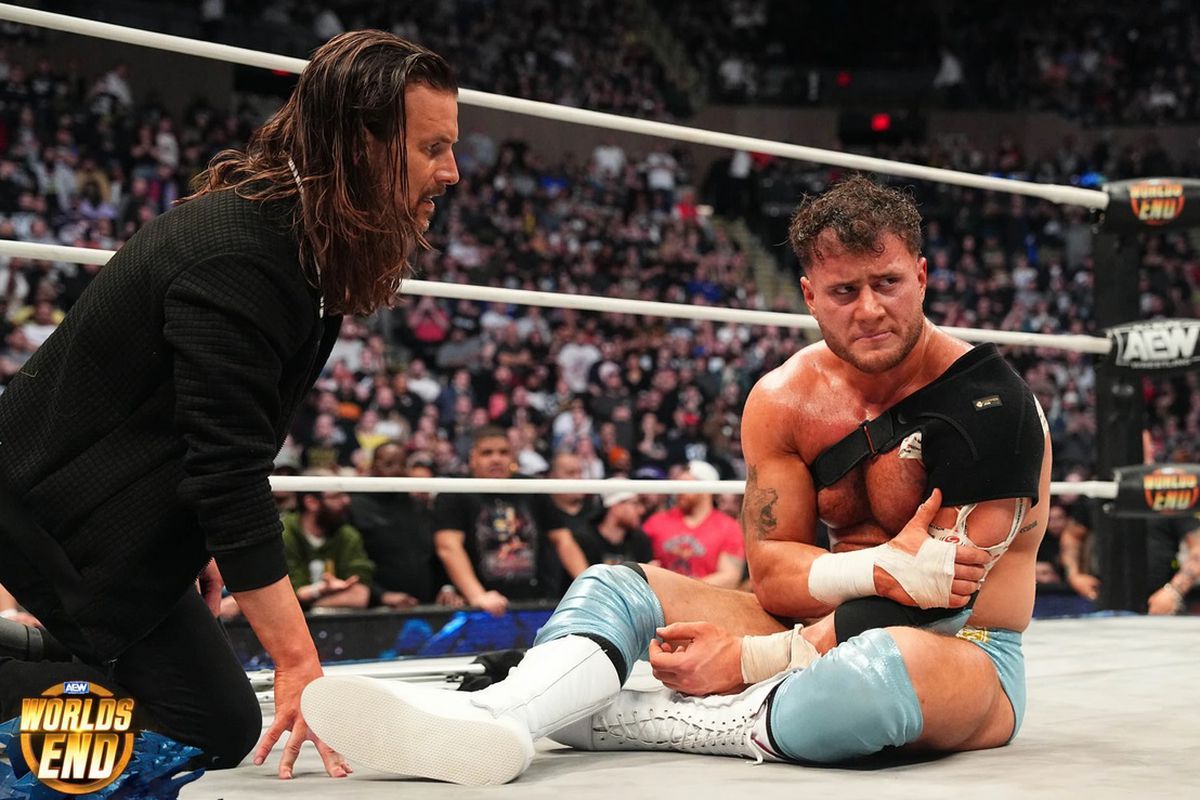
When the attempt at camaraderie fizzled, AEW pivoted back to a feud, hoping to recapture the old magic. Injuries and bad timing disrupted the narrative. What could have been a tense standoff between two top talkers became a patchwork of promos and appearances that lacked continuity. Alignments flipped without clear reason, and matches lost meaning as one piece of the puzzle after another disappeared. The feud’s logic frayed, leaving fans uncertain about each character’s motivation. Instead of building to a climactic showdown, the angles felt improvised and incomplete.
This lingering storyline should have rejuvenated MJF, giving him a cause or conflict that rekindled the fire in his words. Instead, it compounded the problem. Without a cohesive narrative, even MJF’s gift for language could not fully mask the emptiness. Where once he used elaborate metaphors and personalized insults that cut to the bone, now his promos felt like going through the motions. The crowd that once hung on every phrase began to tune out, waiting for a spark that never came.
MJF’s decline did not occur in a vacuum. It reflected broader issues in AEW’s creative environment.
Early on, the promotion thrilled fans with alternative storytelling, fresh matchups, and a willingness to embrace innovations. But maintaining that level of creativity proved challenging. As the roster expanded, storylines overlapped. Surprising turns lost their shock value. Angles dragged on too long, while others ended prematurely. The company that once prided itself on long-term booking struggled to maintain coherence across multiple arcs.
In this environment, even a performer like MJF could become lost. He was no longer a singular force around which AEW’s best stories revolved. Instead, he was one among many wrestlers competing for meaningful screen time. The complexity of juggling numerous characters and angles left once-clear narrative threads tangled. Sometimes major events lacked proper buildup; other times, big payoffs felt unearned. Fans who admired AEW’s initial vision grew uneasy, wondering if the promotion had lost its creative compass.

MJF needed a storyline that challenged him, something that tested his persona’s depth and forced him to adapt. But the feuds he encountered often circled old territory or never found their footing. Without a well-crafted adversary or meaningful conflict, his talent drifted aimlessly. He delivered lines, performed matches, and went through wrestling motions, yet the emotional core was missing. People still respected his skill, but respect alone cannot sustain excitement. Wrestling thrives on passion, surprise, and the sense that anything can happen.
To regain his prominence, MJF must rediscover what made him special. He thrived when confronted by opponents who challenged his identity, forcing him to sharpen his approach. Perhaps a new rival could expose vulnerabilities he never acknowledged. Maybe he should struggle with moral dilemmas that demand character evolution. If he remains a villain, let him face foes so ruthless that his cruelty seems justified. If he attempts heroism, let him confront scenarios that reveal genuine conflict. He must abandon safe routines and re-embrace the tension that once defined him.
AEW must also play its part. The company should craft narratives that highlight MJF’s strengths and push him to grow. It should rely less on pre-taped segments or overextended comedy routines that fail to resonate. Instead, place him in live scenarios where he can react spontaneously. Embrace unpredictability. Provide alliances that make sense and foes with distinct personalities who demand new tactics. If done right, the crowd will lean in again, excited and uncertain, as MJF recovers his lost aura.
In wrestling, reinvention is essential. Great performers have rebounded from slumps. Even if fans tire of a character, a well-timed storyline can restore credibility. MJF’s decline might mark a turning point.
If he embraces the need to evolve, he could emerge stronger, surprising everyone with new angles and sharper conflicts. He can draw on his early years as a blueprint: remember the intensity of those first rivalries, the intricate psychology battles, the sense that every encounter mattered.
The audience that once leaned forward at the start of his promo can be won back. They are not gone, only waiting. They yearn for the MJF who made them feel something authentic, even if it was outrage or discomfort. They want to be unsettled again, reminded that he is not just another wrestler with a microphone, but a master manipulator shaping the arena’s atmosphere with a sentence or a raised eyebrow.
As you watch MJF’s current run, look for signs of hope—moments when his old brilliance reappears under pressure. Perhaps he meets a rising star who resists bullying, forcing him to find new strategies. If he adapts, you may see sparks of life again. Maybe he faces a veteran who calls out his complacency, inspiring him to refine his approach and think more deeply about his message.
The key is restoring meaning to his actions and words. He must stop relying on a reputation built in AEW’s early days. Each promo should advance a story, reveal character layers, or intensify a rivalry. He should remember that a master villain never repeats old tricks indefinitely. He evolves, always staying a step ahead of expectations. Fans should not predict his punchlines or know where he will pivot next.

AEW can support this by adjusting its pacing. Let some storylines breathe, while cutting short those that have run their course. Avoid cramming too many angles into one show. Give MJF a clear direction with steadily rising stakes. Let him set traps for opponents who think they understand him. Let him win matches that matter and suffer losses that push him to become sharper. Matches should form chapters in a narrative, not isolated events.
If MJF finds a narrative full of tension and novelty, he can recapture his past allure. Once he reclaims that aura, the audience’s posture will change. They will lean forward again, eyes narrowed, anticipating the next wicked phrase. They will pay attention not out of habit, but because he demands it, making them feel uncertain and alive.
His decline is not permanent. In wrestling, every setback can trigger a comeback.
Will MJF seize this opportunity? Will he accept that what worked before will not always work now? Will he push himself toward new disruptions, cutting deeper into adversaries’ psyches? If he does, he can transcend this slump, turning the story of his decline into a prelude to a new peak.
AEW’s creative team must remember that MJF’s early brilliance was no accident. It stemmed from synergy between performer and promotion. Magic cannot be mass-produced. It requires careful thought, patience, and risk-taking. They must give MJF the tools: time, meaningful conflicts, and stories that inspire rather than constrain him. If they succeed, he can once again symbolize what makes wrestling storytelling special.
When MJF returns to form—if he and AEW commit to it—viewers will sense it instantly. The old tension will return. The crowd will hold its breath between sentences. Opponents will approach him warily, knowing each misstep can be weaponized. MJF, reinvigorated, will stand tall not as a fading star, but as a man who rediscovered his edge, reminding everyone why he once defined an era.
For now, you keep watching, remembering the past and hoping for the future. You wonder if the devil has another trick. Wrestling thrives on reinvention, and so must MJF. He holds the key to his revival. The question is not whether he can be great again—he can. The question is whether he will embrace the need for change and move beyond patterns that made him ordinary. If he does, the energy will return. You will lean forward once more, heart pounding, as MJF reclaims his place in AEW’s narrative universe.

As you consider this journey, remember what made wrestling captivating in the first place. It was never just athleticism or bright lights. It was the sense that at any moment, something extraordinary could happen. MJF once tapped into that feeling, and he can again. Today’s decline is a chapter, not the entire story. With effort, creativity, and courage, he can transform this chapter from a cautionary note into a prelude of greatness still to come.
MJF’s decline is real, but it is not destiny. He has time to find new ways to fascinate, disturb, and provoke. He can break free from safe routines and stale angles. He can rediscover that special flair that once distinguished him. If he takes the risk, the payoff will be worth it. Fans will remember why they cared, and newcomers will understand the legend they missed. And you, sitting on your couch, will once again lean forward, eager and attentive, as MJF reclaims the heart of AEW’s storytelling.

